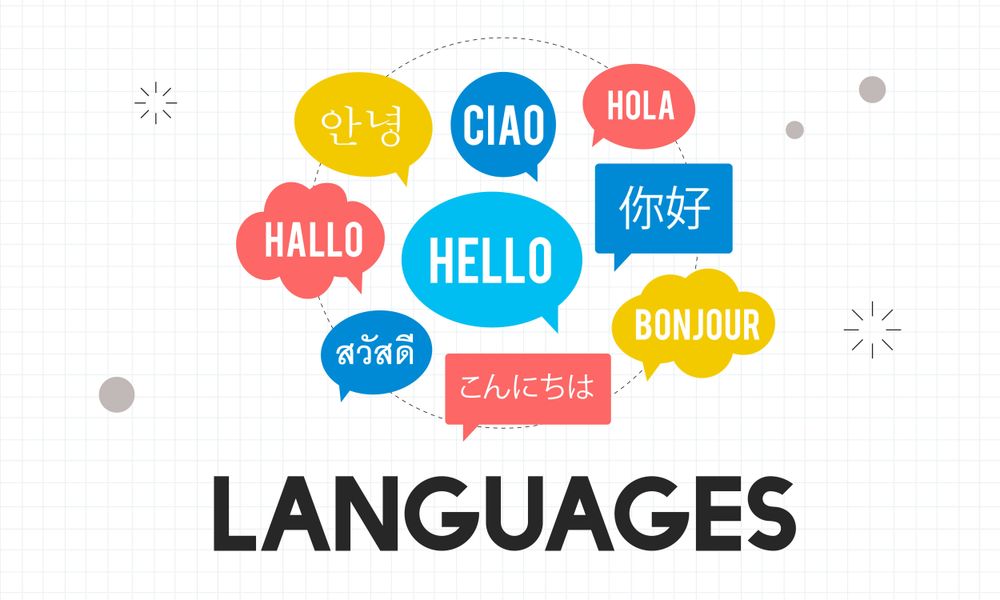
Claude 3 Sonnet and Opus face off.
The world of artificial intelligence is rapidly evolving, with new models and capabilities emerging at an unprecedented pace. Among the latest advancements in AI technology are Anthropic's Claude 3 Sonnet and Claude 3 Opus models. These sophisticated language models have garnered significant attention for their impressive capabilities and potential applications across various industries. In this comprehensive comparison, we'll delve deep into the features, performance, and use cases of Claude 3 Sonnet and Opus, helping you understand which model might be best suited for your specific needs.
Understanding the Claude 3 Model Family
This section orients you to Anthropic’s three-model stack—Haiku, Sonnet, and Opus—so you can map task complexity, latency needs, and budget to the right tier before choosing.
Before we dive into the specifics of Sonnet and Opus, it's essential to understand the context of the Claude 3 model family. Anthropic, the company behind these AI models, has developed a suite of language models designed to cater to different requirements and use cases.
The Claude 3 Lineup
- Claude 3 Haiku: The most lightweight and fastest model in the family, suitable for quick tasks and real-time applications.
- Claude 3 Sonnet: A balanced model offering a combination of speed and advanced capabilities.
- Claude 3 Opus: The most powerful and sophisticated model in the lineup, designed for complex tasks and high-level reasoning.
Each model in the Claude 3 family has been crafted to excel in specific areas while maintaining the core principles of safety, ethics, and reliability that Anthropic is known for. Now, let's focus on the two models at the heart of our comparison: Sonnet and Opus.
Claude 3 Sonnet: Balancing Speed and Intelligence
Choose Sonnet when you need strong reasoning with low latency: it’s fast, multimodal, and broadly capable—ideal for chat, content ops, summaries, and high-throughput workflows.

A robot radiating speed and intelligence.
Claude 3 Sonnet represents a significant leap forward in AI technology, offering a harmonious blend of speed and advanced capabilities. This model is designed to handle a wide range of tasks efficiently while maintaining a high level of accuracy and intelligence.
Key Features of Claude 3 Sonnet
- Improved Processing Speed: Sonnet operates at twice the speed of its predecessor, making it an excellent choice for tasks that require quick turnaround times.
- Enhanced Language Understanding: The model demonstrates a remarkable ability to comprehend and generate human-like text across various contexts and languages.
- Multimodal Capabilities: Sonnet can process and analyze both text and images, opening up new possibilities for visual-based tasks and applications.
- Expanded Knowledge Base: With a vast repository of information, Sonnet can provide accurate and up-to-date responses on a wide array of topics.
- Ethical Reasoning: Like all Claude models, Sonnet is designed with strong ethical principles, ensuring responsible and safe AI interactions.
Performance and Use Cases
Claude 3 Sonnet excels in tasks that require a balance of speed and sophistication. Some ideal use cases include:
- Rapid Content Generation: Sonnet's increased speed makes it perfect for creating high-quality content quickly, such as articles, reports, or social media posts.
- Real-time Customer Support: The model's fast response times and advanced language understanding make it an excellent choice for chatbots and customer service applications.
- Data Analysis and Summarization: Sonnet can quickly process large amounts of data and provide concise, insightful summaries.
- Language Translation: With its multilingual capabilities, Sonnet can efficiently translate between languages while maintaining context and nuance.
- Creative Writing Assistance: The model's advanced language generation abilities make it a valuable tool for writers seeking inspiration or help with creative projects.
Claude 3 Opus: The Pinnacle of AI Sophistication
Pick Opus for hardest problems: maximum reasoning, huge context, and stronger multimodal analysis—best for research, strategy, complex coding, and domain-deep work.

A man stares into the pinnacle of AI creation.
As the most advanced model in the Claude 3 family, Opus represents the cutting edge of AI technology. This powerhouse is designed to tackle the most complex tasks and challenges, pushing the boundaries of what's possible in artificial intelligence.
Key Features of Claude 3 Opus
- Unparalleled Reasoning Abilities: Opus demonstrates exceptional skills in logical reasoning, problem-solving, and critical thinking across various domains.
- Expansive Context Window: With the ability to process up to 1 million tokens (approximately 750,000 words), Opus can handle extremely long and complex inputs.
- Advanced Multimodal Processing: Opus takes visual understanding to the next level, with enhanced capabilities in image analysis and generation.
- Cutting-edge Language Models: The model incorporates the latest advancements in natural language processing, resulting in more nuanced and contextually appropriate responses.
- Robust Ethical Framework: Opus is built with an even more sophisticated ethical reasoning system, ensuring responsible AI use in high-stakes scenarios.
Performance and Use Cases
Claude 3 Opus is tailored for tasks that demand the highest level of AI intelligence and capabilities. Some ideal use cases include:
- Complex Research and Analysis: Opus can process vast amounts of information, draw insights, and contribute to advanced research across various fields.
- Advanced Code Generation and Debugging: The model's deep understanding of programming concepts makes it an invaluable tool for software development.
- Sophisticated Problem-Solving: Opus can tackle complex, multi-step problems in fields such as mathematics, physics, and engineering.
- In-depth Medical Analysis: With its advanced reasoning capabilities, Opus can assist in medical diagnoses and treatment planning.
- High-level Strategic Planning: The model can analyze complex business scenarios and provide strategic recommendations based on multiple factors.
Sonnet vs Opus: A Head-to-Head Comparison
This comparison breaks down speed, reasoning, multimodality, context length, cost, and safety so you can align the right model to each workload.
Now that we've explored the individual strengths of Claude 3 Sonnet and Opus, let's directly compare these two powerful AI models across several key dimensions.
Processing Speed and Efficiency
Sonnet: Operates at twice the speed of previous Claude models, making it ideal for tasks requiring quick turnaround.
Opus: Maintains speeds comparable to earlier models but with significantly higher intelligence, suitable for complex tasks where processing time is less critical.
Winner: Sonnet for speed-critical applications; Opus for tasks prioritizing depth over speed.
Language Understanding and Generation
Sonnet: Demonstrates advanced language capabilities suitable for most general-purpose applications.
Opus: Offers the most sophisticated language understanding and generation, excelling in nuanced and context-heavy scenarios.
Winner: Opus, but Sonnet is more than capable for most everyday language tasks.
Multimodal Capabilities
Sonnet: Proficient in processing both text and images, suitable for most visual-language tasks.
Opus: Features enhanced visual understanding and processing, ideal for complex multimodal applications.
Winner: Opus, particularly for advanced visual analysis and generation tasks.
Reasoning and Problem-Solving
Sonnet: Exhibits strong reasoning abilities suitable for most general applications and problem-solving scenarios.
Opus: Demonstrates unparalleled logical reasoning and problem-solving skills, especially in complex, multi-step challenges.
Winner: Opus, particularly for highly complex reasoning tasks.
Context Window and Input Processing
Sonnet: Features an expanded context window compared to previous models, suitable for most applications.
Opus: Boasts an impressive 1 million token context window, allowing for processing of extremely long and complex inputs.
Winner: Opus, especially for tasks involving large amounts of contextual information.
Ethical Considerations and Safety
Sonnet: Built with a strong ethical framework ensuring safe and responsible AI interactions.
Opus: Incorporates an even more advanced ethical reasoning system, crucial for high-stakes applications.
Winner: Both models prioritize ethics, with Opus having a slight edge in complex ethical scenarios.
Cost and Resource Requirements
Sonnet: More cost-effective and resource-efficient, suitable for a wide range of applications and businesses.
Opus: Requires more computational resources and comes at a higher cost, justified by its advanced capabilities.
Winner: Sonnet for general use and cost-effectiveness; Opus for specialized, high-value applications.
Choosing Between Claude 3 Sonnet and Opus
Use Sonnet when speed, scale, and cost matter most; reach for Opus when you need maximum reasoning depth, longer context, or higher stakes.
Selecting the right AI model for your needs depends on various factors, including the complexity of your tasks, required processing speed, budget constraints, and specific use cases. Here are some guidelines to help you make an informed decision:
When to Choose Claude 3 Sonnet
- Speed is a Priority: If your applications require quick response times, such as real-time customer support or rapid content generation, Sonnet's enhanced speed makes it an excellent choice.
- Cost-Effective Solutions: For businesses looking to balance advanced AI capabilities with budget considerations, Sonnet offers a more economical option without sacrificing quality.
- General-Purpose Applications: If your tasks fall within the realm of general language processing, content creation, or data analysis, Sonnet's capabilities are more than sufficient.
- Resource Constraints: If you have limited computational resources or are working with systems that can't handle the demands of Opus, Sonnet provides a powerful yet more manageable alternative.
- Iterative Development: For projects that require frequent iterations or testing, Sonnet's faster processing times can significantly speed up development cycles.
When to Opt for Claude 3 Opus
- Complex Problem-Solving: If your tasks involve intricate, multi-step problems or require advanced reasoning capabilities, Opus's superior intelligence makes it the ideal choice.
- Extensive Context Processing: For applications that need to analyze or generate content based on large amounts of contextual information, Opus's expansive context window is invaluable.
- Cutting-Edge Research: In fields like scientific research, advanced medical analysis, or high-level strategic planning, Opus's unparalleled reasoning abilities can provide groundbreaking insights.
- Sophisticated Language Tasks: For projects requiring the most nuanced understanding of language, including complex translation work or advanced natural language processing, Opus offers the highest level of sophistication.
- High-Stakes Applications: In scenarios where the utmost accuracy and ethical consideration are crucial, such as legal analysis or financial modeling, Opus's advanced capabilities and robust ethical framework make it the safer choice.
The Future of AI: Beyond Sonnet and Opus
Expect tighter multimodal fusion, stronger built-in alignment, and better efficiency—pushing toward models that are both faster and smarter.

A robot walks into the horizon.
As impressive as Claude 3 Sonnet and Opus are, the field of artificial intelligence continues to evolve at a rapid pace. Anthropic and other AI companies are constantly pushing the boundaries of what's possible, and we can expect to see even more advanced models in the future.
Potential Advancements
- Enhanced Multimodal Integration: Future models may seamlessly integrate text, image, audio, and video processing, opening up new possibilities for AI applications.
- Improved Ethical Reasoning: As AI becomes more prevalent in decision-making processes, we can expect to see even more sophisticated ethical frameworks built into these models.
- Increased Efficiency: Advancements in hardware and software optimization may lead to models that combine the speed of Sonnet with the intelligence of Opus.
- Specialized Domain Expertise: We may see AI models tailored for specific industries or fields, offering unparalleled expertise in areas like medicine, law, or engineering.
- Enhanced Human-AI Collaboration: Future models could be designed to work even more seamlessly alongside human experts, augmenting our capabilities in unprecedented ways.
Conclusion: Embracing the AI Revolution with Claude 3 Sonnet and Opus
Bottom line: use Sonnet for fast, scalable intelligence across everyday workloads; reach for Opus when the problem is complex, high-stakes, or context-heavy.
The introduction of Claude 3 Sonnet and Opus marks a significant milestone in the evolution of artificial intelligence. These models represent the cutting edge of what's possible in language processing, reasoning, and problem-solving, offering businesses and individuals powerful tools to tackle a wide range of challenges.
While Sonnet excels in balancing speed and advanced capabilities, making it ideal for many general-purpose applications, Opus pushes the boundaries of AI intelligence, offering unparalleled performance in complex, high-stakes scenarios. The choice between these two models ultimately depends on your specific needs, resources, and the nature of the tasks you aim to accomplish.
As we continue to explore the possibilities offered by these advanced AI models, it's crucial to approach their use responsibly, always considering the ethical implications and potential impacts on society. By leveraging the strengths of Claude 3 Sonnet and Opus thoughtfully, we can unlock new realms of productivity, creativity, and innovation across various industries and domains.
The future of AI is bright, and with models like Claude 3 Sonnet and Opus leading the way, we're only beginning to scratch the surface of what's possible. As these technologies continue to evolve, they promise to revolutionize how we work, learn, and solve problems, ushering in a new era of human-AI collaboration and advancement. The potential for these models to transform industries and enhance human capabilities is immense, and as we embrace these advancements, we must remain vigilant in ensuring their ethical and responsible use. By doing so, we can harness the full power of AI to drive progress and create a better future for all. The journey of AI development is ongoing, and with each step forward, we are presented with new opportunities to innovate and improve the world around us. As we stand on the brink of this exciting future, the possibilities are truly limitless, and the impact of AI on our lives will only continue to grow. The evolution of AI models like Claude 3 Sonnet and Opus is just the beginning, and as we look to the horizon, the potential for groundbreaking advancements is both exciting and inspiring.
FAQs
Which should I pick for customer support automation?
Claude 3 Sonnet. It offers strong language skills with faster responses and lower cost.
When is Opus worth it?
Use Opus for complex reasoning, long-context analysis, research, strategy, or high-stakes domains.
Do both models handle images?
Yes. Both are multimodal, but Opus provides more advanced visual understanding for complex tasks.
Does Sonnet support long documents?
Yes, it supports expanded context for typical use; Opus is better for extremely long inputs.
Can I start with Sonnet and later upgrade?
Absolutely. Many teams prototype with Sonnet for speed/cost, then switch specific workloads to Opus.





